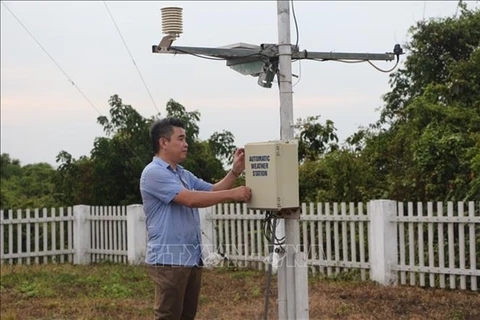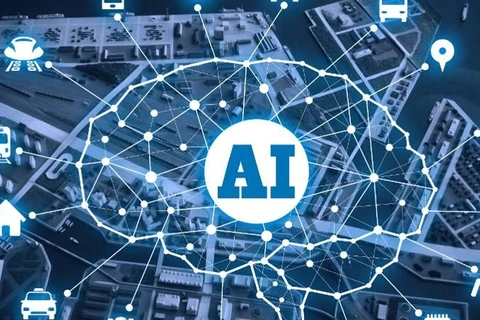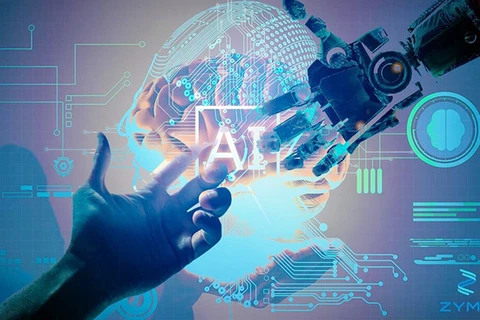 Vietnam ranked 6th out of the 10 ASEAN member countries and 55th globally in the 2022 Government AI Readiness Index.(Photo: Internet)
Vietnam ranked 6th out of the 10 ASEAN member countries and 55th globally in the 2022 Government AI Readiness Index.(Photo: Internet) Hanoi (VNA) – Vietnam ranked 6th out of the 10 ASEAN member countries and 55th globally in the 2022 Government AI Readiness Index, up seven places compared to 2021, according to the index report released by the UK’s Oxford Insights.
The country earned an average score of 53.96 points in 2022, increasing from 51.82 points in 2021 and surpassing the global average of 44.61, according to Oxford Insights, which ranked 181 countries this year, up from 160 in last year’s iteration.
These are part of the article “Vietnam’s AI Leadership Status Is Blossoming” published last week by the US magazine Forbes. The article summarises several research sources about Vietnam’s AI industry, indicating that it has an ambitious plan to lead the AI industry in Asia, turning it into top four countries in Asia in terms of artificial intelligence advancement.
Forbes highlighted Vietnam’s jump in the AI readiness index when mentioning that the International Development Research Centre in Canada and the UK’s Oxford ranked Vietnam 6th in ASEAN and 62nd in the world for the 2021 Government Artificial Intelligence Readiness Score.
That was the first time Vietnam’s AI Readiness Score reached 51.82 out of 100, which surpasses the global average of 47.72 and helps the country climb 14 places compared to the previous year. The readiness of a country or territory toward AI technology is evaluated through three pillars – the government, technology, and data infrastructure.
The article cited statistics from the Ministry of Information and Communications which says that Vietnam now has more than 64,000 digital technology enterprises, an increase of 5,600 compared to 2020, and nearly 1,000 Vietnamese branded ICT products and services.
It is estimated that it has more than 1 million IT workers, and more than 80,000 university and college graduates majoring in information and communication technology.
Moreover, the Vietnamese government is investing heavily in AI and other digital technologies such as machine learning, blockchain, big data analytics, the Internet of Things (IoT), and cloud computing.
Vietnam recently approved the National Digital Transformation Programme by 2025 with an orientation towards 2030, which creates a foundation for a solid strategy for the country to become a powerful AI innovator in the years to come.
However, besides positive signs for AI industry development, Vietnam is still facing challenges, particularly those relating to human resources with the necessary knowledge in AI, the article pointed out.
According to the World Intellectual Property Organisation (WIPO), there are fewer than 2,000 Vietnamese studying and working in AI-related fields, and fewer than 300 are considered AI experts. Currently, there are about 50 universities and academies in Vietnam that teach major subjects related to AI./.

























